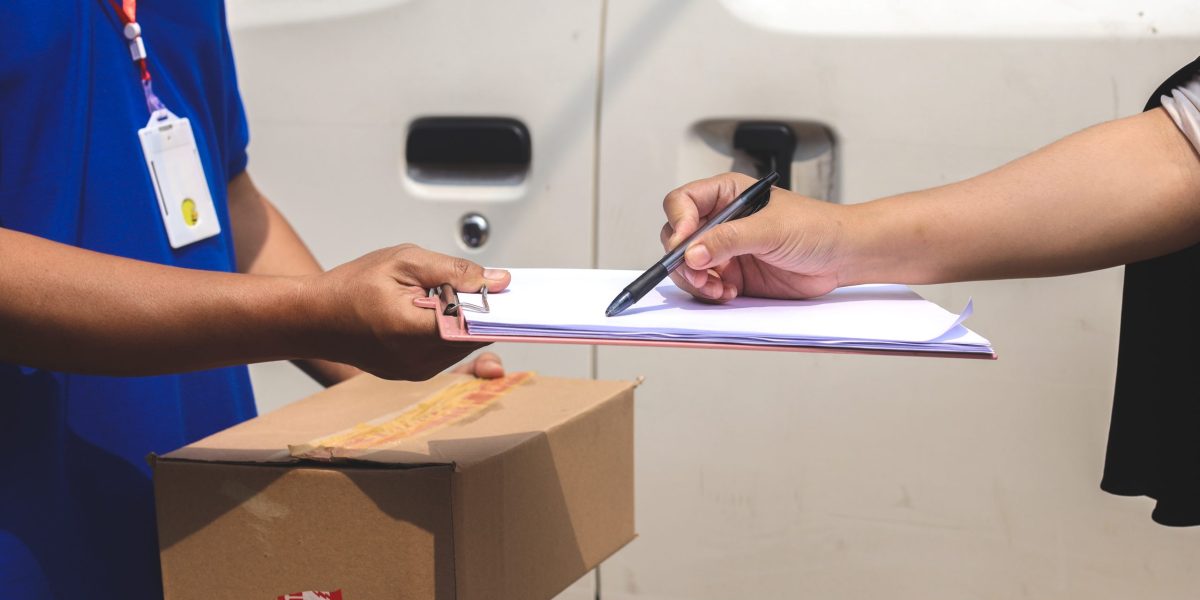If you’ve ever wondered what is the best medical courier certification, you’re already on the right path. In the healthcare delivery world, trust, compliance, and safety are non-negotiable. Medical couriers transport sensitive materials ranging from prescriptions and lab specimens to blood and organs making certifications critical.
This article will explore the essential medical courier certifications, their costs, how to get certified, and which credentials are truly worth your investment. Whether you’re new to the industry or looking to grow your courier business, this guide will answer all your questions.
Why Certifications Matter for Medical Couriers
A medical courier doesn’t just deliver packages they handle time-sensitive, life-impacting materials. Certifications ensure:
- Compliance with federal and state regulations
- Protection of patient privacy (HIPAA compliance)
- Proper handling of hazardous or biological materials
- Credibility with hospitals, labs, and pharmacies
Without the right certifications, many healthcare facilities won’t even consider working with a courier.
The Role of Compliance in Healthcare Logistics
Healthcare is one of the most regulated industries in the U.S. Medical couriers must follow strict standards including:
- HIPAA (Health Insurance Portability and Accountability Act): Protects patient data.
- OSHA (Occupational Safety and Health Administration): Ensures safety in handling biohazards.
- DOT (Department of Transportation): Governs the transport of hazardous materials.
Certifications act as proof that you or your business comply with these laws.
What Is a Medical Courier Certification?
A medical courier certification is formal training that confirms your knowledge of handling, transporting, and safeguarding medical materials. Unlike a standard delivery driver, a certified medical courier demonstrates:
- Proper specimen handling
- Understanding of chain-of-custody
- Compliance with HIPAA privacy rules
- Familiarity with OSHA safety requirements
Think of it as your professional passport into healthcare logistics.
Core Certifications Every Medical Courier Should Consider
HIPAA Certification for Medical Courier
This is the most essential certification. It ensures that couriers protect sensitive patient information and handle documents securely.
HIPAA and OSHA Certification for Medical Courier
Often paired together, this combination covers both data privacy and workplace safety. Healthcare facilities typically prefer couriers with both.
Bloodborne Pathogens Training
Medical couriers frequently transport specimens that may contain blood or other infectious materials. This certification is required by OSHA.
Hazmat Certification (When Required)
Some couriers transport hazardous medical waste. If your services include this, DOT hazmat training is mandatory.
Other Specialized Medical Courier Certifications
- Phlebotomy transport training (for lab specimens)
- Cold chain logistics certification (for temperature-sensitive meds)
- Pharmacy delivery compliance training
How to Get Medical Courier Certification
If you’re asking how to get medical courier certification, here’s the process:
- Choose your certification(s) – HIPAA and OSHA are the basics.
- Select a provider – Many online and in-person organizations offer training.
- Complete the coursework – Typically a few hours to a few days.
- Pass assessments – Some certifications require exams.
- Receive documentation – A certificate you can show clients and employers.
What Certifications Do I Need to Be a Medical Courier?
At a minimum, you’ll need:
- HIPAA certification for medical courier
- OSHA safety training (bloodborne pathogens)
If your services include handling biohazards or hazardous waste, you’ll also need DOT hazmat training.
What Certifications Do You Need to Be a Medical Courier?
Employers and healthcare facilities typically look for:
- HIPAA certification
- HIPAA and OSHA certification for medical courier
- Training in specimen handling and cold chain logistics
- Defensive driving or fleet safety courses
Comparing the Best Medical Courier Certifications
| Certification | Purpose | Cost Range | Renewal | Importance Level |
| HIPAA | Protects patient data | $50–$150 | 1–2 years | ★★★★★ |
| OSHA (Bloodborne Pathogens) | Worker safety | $50–$100 | 1 year | ★★★★☆ |
| HIPAA + OSHA Combo | Privacy + Safety | $100–$250 | 1–2 years | ★★★★★ |
| DOT Hazmat | Hazardous transport | $100–$300 | 3 years | ★★★★☆ |
| Cold Chain Logistics | Temperature-sensitive delivery | $200–$500 | Varies | ★★★★☆ |
Medical Courier Certification Cost Breakdown
The medical courier certification cost depends on the provider and level:
- Basic HIPAA: $50–$150
- HIPAA + OSHA bundle: $100–$250
- DOT Hazmat training: $100–$300
- Specialized cold chain or lab specimen training: $200–$500
For a small business starting out, budgeting $500–$1,000 per employee is realistic.
State-Specific Requirements
- Florida: Strong emphasis on HIPAA and OSHA training for compliance with large retirement population healthcare needs.
- Texas: Couriers working with hospitals often require HIPAA, OSHA, and bloodborne pathogens training.
- California: Strictest on OSHA compliance and environmental regulations. Cold chain certifications are highly valued here.
Training Options: Online vs In-Person
- Online Training: Affordable, convenient, self-paced.
- In-Person Training: Hands-on, especially useful for hazmat and specimen handling.
- Hybrid Programs: Combine online theory with in-person practical assessments.
Building a Career Path with Certifications
Certifications help couriers:
- Secure higher-paying contracts.
- Build trust with healthcare providers.
- Transition into medical logistics management roles.
- Scale courier businesses into regional or national providers.
Common Mistakes to Avoid When Getting Certified
- Only getting one certification when multiple are required.
- Not renewing certifications on time.
- Choosing unaccredited training providers.
- Assuming general courier experience is enough for medical logistics.
The Future of Medical Courier Certifications
Expect growth in:
- Digital compliance tracking (apps for HIPAA compliance).
- Eco-friendly transport training (for EV couriers).
- Telehealth-driven delivery training for home healthcare.
- Advanced cold chain certification as biologics and specialty medications expand.
So, what is the best medical courier certification? The answer depends on your goals, but HIPAA and OSHA certifications for medical couriers form the foundation. Adding bloodborne pathogen training, hazmat certification, and cold chain logistics makes you more competitive.
If you’re starting fresh, begin with HIPAA certification for medical courier, then expand into HIPAA and OSHA certification for medical courier. Over time, invest in specialized medical courier certifications that match your business model.







